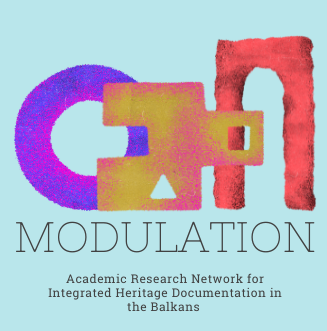About
Over the last two centuries, the importance of cultural heritage as a factor for the development of culture and societies has been acknowledged worldwide. The recognition of heritage significance and impact resulted in the creation and implementation of various protection mechanisms, and many local, national and international organizations become involved in the development of contracts, recommendations, conventions, agreements, as well as the campaigns, for cultural heritage preservation.
The history teaches us that heritage knows no strict territorial boundaries. Today, in different countries we find similar or identical forms of heritage left to us by previous generations. Therefore, to study these heritage forms, their genesis and development, and to define the proper treatment in the present time, it is inevitable to carry out regional actions. Furthermore, heritage studies comprise an interdisciplinary and heterogeneous field of study and research, hence the collaborative engagement of academics and experts from various disciplines including archaeology, history, arts, anthropology, conservation studies, architecture and engineering, ethnology, museology, sociology, tourism, and other, is essential. People living in the Balkan Peninsula over centuries have created a very rich and diverse cultural heritage but the upheavals in the region have largely affected the continuity of its development and the preservation. The cultural heritage of the Balkans, especially in recent decades, has witnessed and experienced mistreatment and the ignorance by many, including public authorities and private interests. Τhe absence of uniform standards for the documentation of cultural heritage is another negative factor, a result of which is the difficulty to integrate cultural heritage into any level of societal, cultural or spatial development.
The mission of newly founded Academic Research Network for Integrated Heritage Documentation in the Balkans (MODULATION) is to support protection, conservation, management and promotion of cultural and historical heritage of the Balkan Peninsula as a pre-condition for sustainable development of the region. Within the MODULATION, the term cultural heritage refers to both tangible and intangible elements of exceptional historical, architectural, archaeological, ethnological, artistic, scientific, technological and/or cultural interest and significance. Tangible elements are both immovable and movable (i.e. buildings, wall paintings and archaeological sites as well as objects, works of art, icons, pots, etc.), while intangible elements include language, songs, dances, traditions, and the like.
The objectives of the Academic Research Network for Integrated Heritage Documentation in the Balkans (MODULATION) are to:
- enhance utilization of cultural heritage and improve its management, both of which are considered prerequisites for sustainable development in the Balkan Peninsula
- provide global access, both direct and virtual, to the Balkan heritage, especially for international scholars, students, donors and the tourists
- raise the level of Balkan cooperation and exchange of ideas, know-how, expertise and resources concerning the Balkan heritage
- foster unification of the heritage nomenclatures (terms, periods, names, etc.), and online publications of capital fundamental writings and summaries concerning the Balkan cultural heritage
- create a Digital Repository: a well-structured and properly designed (metadata, semantics, ontologies) repository of generated knowledge
- initiate and facilitate participatory processes: planning a ‘spatial forum’, mobilizing and informing targeted audiences, creating educational tools
- organize artistic and pedagogical workshops.
The MODULATION will collaborate at local, regional and global level with universities, museums, libraries and other relevant institutions working on the protection of cultural heritage including policy authorities and the governing bodies.

